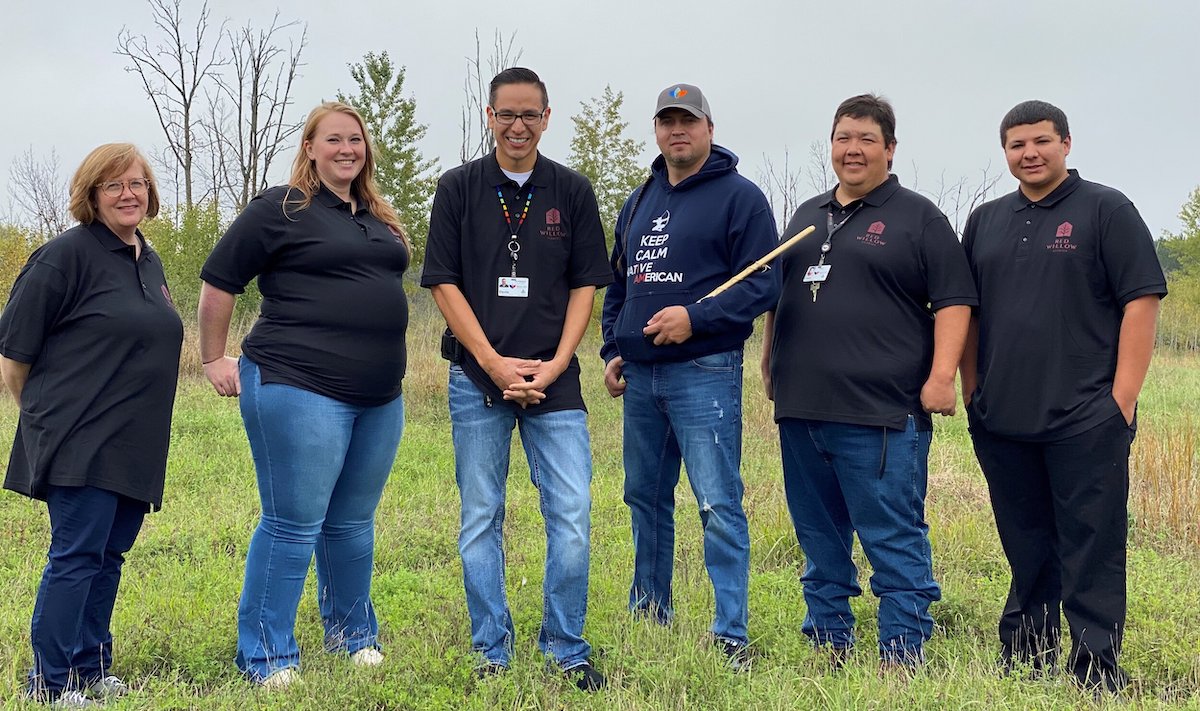
- Details
- By Native News Online Staff
This week, we debut a weekly round-up of stories about Native business and the Tribal economy, with reporting from our sister publication, Tribal Business News.
Mille Lacs Corporate Ventures Boosts Indigenous Entrepreneurs
The Mille Lacs Band of Ojibwe and its Mille Lacs Corporate Ventures arm realized that they may have been missing a critical piece to create a resilient economy for the central eastern Minnesota tribe.
While the tribe had developed a series of its own successful enterprises, the pandemic led them to realize that they needed to do more to support tribal citizens in their own entrepreneurial ventures.
Want more Tribal Business News? Get the free weekly newsletter today.
“We recognized the risk of only pulling that one lever within a region when it’s all dependent on the mothership and everything’s tied together,” Dustin Goslin, vice president of business and economic development at MLCV, told Tribal Business News.
Leaders began to ask: “Can we pivot and do more things around building an entrepreneurial ecosystem?” That pivot led MLCV to create a series of business incubators, a process detailed in this week’s centerpiece report in Tribal Business News.
Coquille Tribe, Oregon Wildlife Dept. to Save Salmon Stocks
The pandemic also caused the Coquille Indian Tribe in Oregon to make some stark revelations, namely that the prized Chinook salmon that’s been ingrained in the tribe’s culture for centuries was facing extinction.
Tribal leaders worked with the Oregon Department of Fish and Wildlife to create an action plan to save the salmon stocks, which led the two parties into deeper discussions about how they interacted. The result: ODFW signed an agreement to give the tribe power to manage fish and wildlife in the five-county area of the Coquille River watershed, a deal that also opens tribal members to have the ability to hunt, fish and trap.
“This is a path forward,” Coquille Tribal Chair Brenda Meade told Tribal Business News for this week’s report. “This is sovereignty. We are working together for the common good.”
Mississippi Band of Choctaw Indians Converts Produce Biz into Nonprofit
In another flex of sovereignty, this time focused on food security, the Mississippi Band of Choctaw Indians is in the middle of a process to convert its Choctaw Fresh Produce business into a nonprofit that provides healthy “culturally significant” food to tribal members.
While the company was formed to supply the tribe’s casinos and to sell produce to local grocery stores and some non-Native buyers, the pandemic — once again — forced the tribe to think differently about the organization’s mission, especially since many Choctaw lacked access to fresh, healthy food.
“A lot of us on the reservation don’t have a lot of choices for healthy eating. Choctaw Fresh Produce gives that accessibility to tribal members,” Tomika Bell, lead food coordinator for Choctaw Fresh Produce, told Tribal Business News in the report.
Tribal ISP Expands Scope with Sitka Tribe Agreement
Elsewhere in Indian Country, tribally owned internet service provider Tidal Networks is expanding its scope with an agreement with the Sitka Tribe of Alaska to bring service to Sitka, the tenth largest city in the state.
The project builds on work the Central Council of the Tlingit and Haida Tribes of Alaska-owned company currently is undertaking to launch fixed 4G wireless internet service in Wrangell later this year.
“It’s an extension of our mission; it’s really a perfect fit,” Chris Cropley, broadband network architect for Tlingit and Haida tribes, told Tribal Business News for the story.
Tribal Business Briefs
Lastly, Tribal Business News also provides a weekly round-up of business news briefs from around Indian Country.
This edition includes federal contracting news from Alaska Native-owned Akiak Technology LLC and Cherokee Nation Operational Solutions, as well as expansions at the Northwest Native American Center of Excellence at Oregon Health & Science University thanks to a $3.4 million federal grant.
There’s also details on why Cherokee Nation agreed to pay off a $170 million note from the build-out of Cherokee Nation Outpatient Health Center one year ahead of the due date, and what the Delaware Nation Economic Development Authority plans to do with $2.6 million in funding it received from the Commerce Department’s Economic Development Administration.
More Stories Like This
Navajo Committee Advances $84M Transportation Improvement PlanNCAI Passes Two Emergency Resolutions on Immigration Enforcement Activities
Chickasaw Lighthorse Police Officer named Indian Country Law Enforcement Officer of the Year
Indian Gaming Association Rallies Broad Coalition Against Sports Event Contracts It Calls Illegal Threat to Tribal Sovereignty
Navajo Resources and Development Committee Issues Notice on Livestock Inspection Requirements
Help us defend tribal sovereignty.
At Native News Online, our mission is rooted in telling the stories that strengthen sovereignty and uplift Indigenous voices — not just at year’s end, but every single day.
Because of your generosity last year, we were able to keep our reporters on the ground in tribal communities, at national gatherings and in the halls of Congress — covering the issues that matter most to Indian Country: sovereignty, culture, education, health and economic opportunity.
That support sustained us through a tough year in 2025. Now, as we look to the year ahead, we need your help right now to ensure warrior journalism remains strong — reporting that defends tribal sovereignty, amplifies Native truth, and holds power accountable.
 The stakes couldn't be higher. Your support keeps Native voices heard, Native stories told and Native sovereignty defended.
The stakes couldn't be higher. Your support keeps Native voices heard, Native stories told and Native sovereignty defended.
Stand with Warrior Journalism today.
Levi Rickert (Potawatomi), Editor & Publisher

